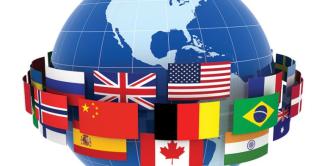
Patience is an International Virtue - By Peter Geckeler
The past five years have not been kind to those investing their money in international markets. While domestic equities continue rewarding investors with soaring returns, international equities have been lagging. In 2014, the worst sector performers were all international: Emerging Markets Value, International Small Cap, and International Large Value. 2015 and 2016 were only slighter better. A USA Today article in early 2015, asked: “Why invest in international funds? It’s a mystery.”
As so often happens with investing, conventional wisdom was not only wrong, it was potentially harmful to investors who decided to make their way out of international markets. In 2017, markets around the world came roaring back, rewarding many who had ignored the pundits and stayed invested internationally. The top-performing asset classes were all international: International Small Cap, Emerging Markets Value and International Large Value.
This is why we believe it is important for investors not to try to time when to get in and out of international (or U.S.) markets, but be patient and stay invested. Nobody knows what the future will bring. But if you invest internationally and own a lot of companies around the world, you can worry less if any one company – or even one country – experiences losses. Nor do you need to be concerned about picking countries that might outperform the U.S. Give us a call if you want to find out more about holding a globally diversified portfolio!
There is no guarantee that a diversified portfolio will outperform a non-diversified portfolio in any given market environment. No investment strategy, such as asset allocation, can guarantee a profit or protect against loss in periods of declining values.
International investing involves additional risks, including currency fluctuations and the potential for adverse developments in specific countries or regions. Investing in emerging markets are generally riskier than those that invest in developed countries
